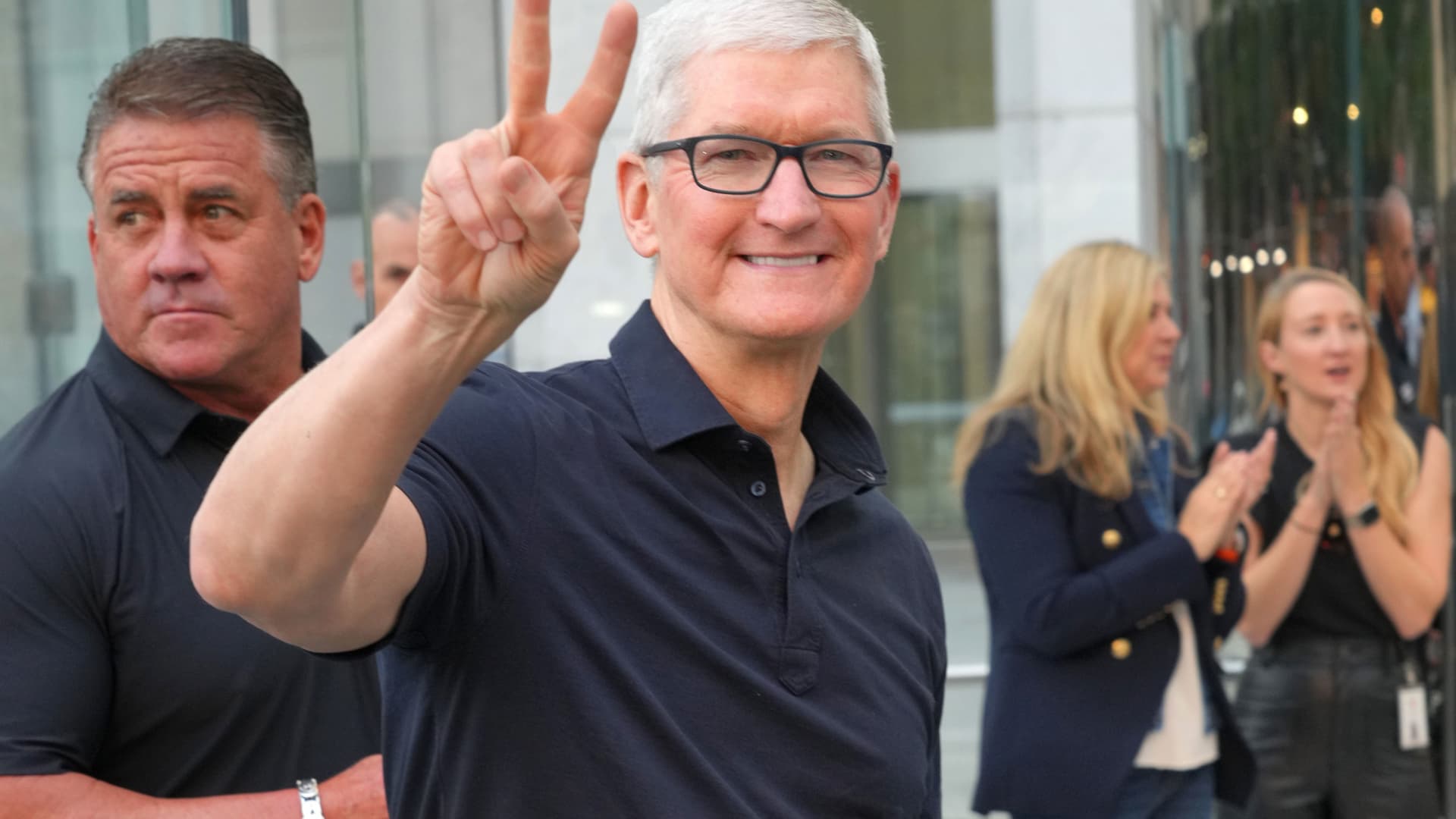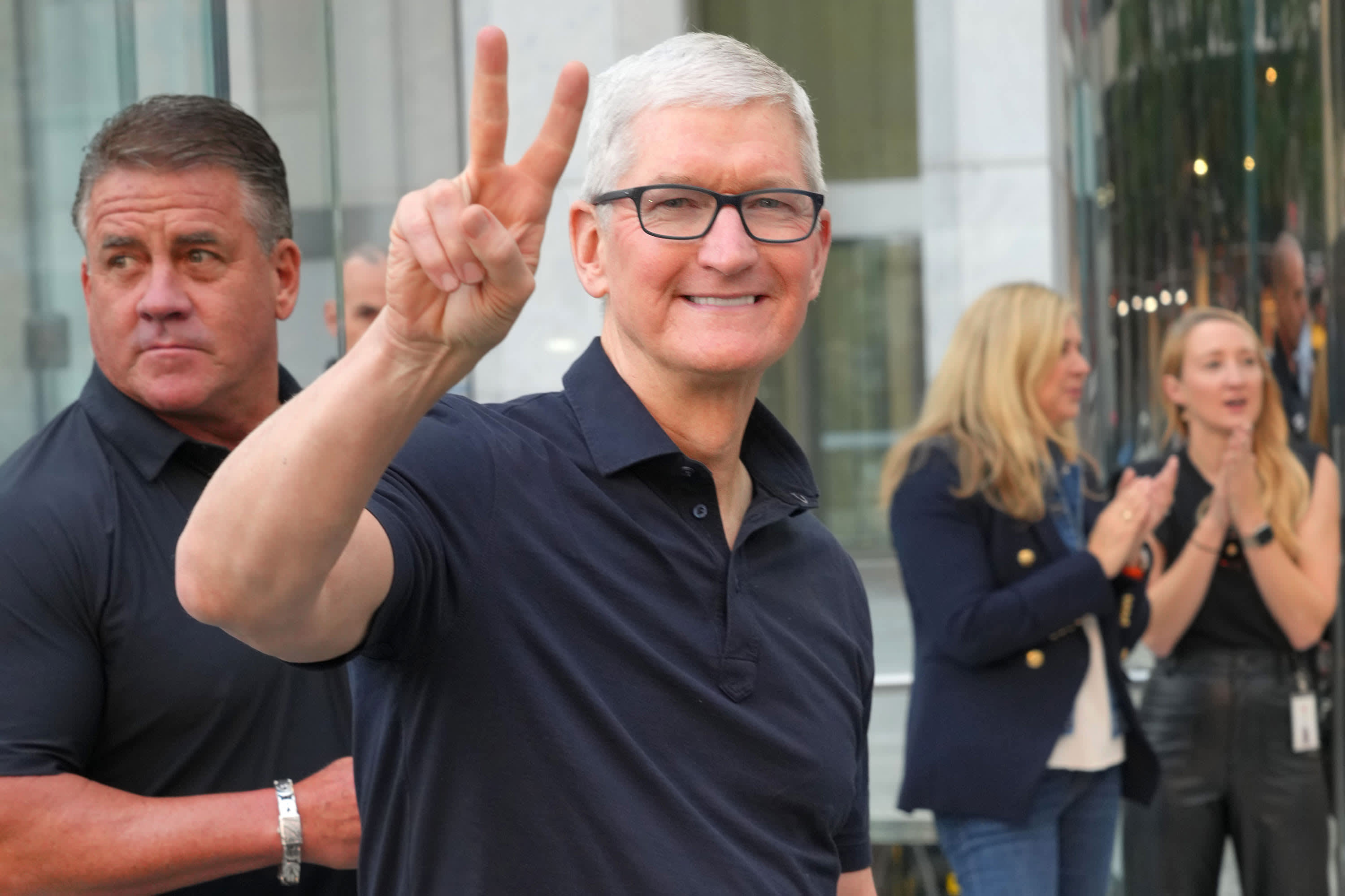
Apple CEO Tim Cook visits the Fifth Avenue Apple Store on September 16, 2022 in New York City.
Kevin Mazur | Getty Images
An appeals court on Monday mostly sided with Apple over its App Store rules in a suit with Epic Games.
The decision signals that Apple’s control over the App Store and the fees it charges likely won’t significantly change as a result of an ongoing legal challenge by Epic Games.
Apple hailed it as a victory.
“Today’s decision reaffirms Apple’s resounding victory in this case, with nine of 10 claims having been decided in Apple’s favor,” a company spokesman told CNBC. “For the second time in two years, a federal court has ruled that Apple abides by antitrust laws at the state and federal levels.”
Apple fiercely controls the App Store, which is the only way to sell iPhone apps to consumers. The tech giant’s employees check every update before they go live and can reject entire apps, and the company takes as much as 30% of all digital sales inside iPhone apps. The store remains a critical source of profit for the company, contributing to Apple’s $78.1 billion in services revenue in fiscal 2022.
App and game developers have chafed under store rules and fees for years, and Epic Games claimed to represent not only itself but also the interests of the broader developer ecosystem by suing Apple claiming that it violated antitrust law.
Epic sued Apple after the game company introduced its own payment system into Fortnite, which broke Apple’s rules and ultimately got the company banned from the App Store. It culminated in a weekslong trial two years ago in California where Apple CEO Tim Cook and Epic Games CEO Tim Sweeney testified.
Monday’s ruling in the Ninth Circuit Court affirmed the decision that primarily found Apple did not violate antitrust law by banning competing app marketplaces on iPhones.
Apple mostly won the initial court battle, with the judge finding that it did not monopolize any market.
However, the iPhone maker did lose one claim and had to allow developers to place links inside their apps so users could make purchases outside the App Store.
The appeals court did not overturn that decision, which was related to California law, and is the one claim that Apple says was not decided in its favor. Whether the company is forced to allow links to outside payments will be determined in possible future hearings.
Apple said in its statement that it was considering further action, which could include an appeal to the Supreme Court. Whether Epic Games will help pay Apple’s legal fees will also be decided at a lower court.
“Apple prevailed at the 9th Circuit Court,” Epic Games CEO Sweeney said in tweets sent after the decision. “Though the court upheld the ruling that Apple’s restraints have ‘a substantial anticompetitive effect that harms consumers’, they found we didn’t prove our Sherman Act case.”
“Fortunately, the court’s positive decision rejecting Apple’s anti-steering provisions frees iOS developers to send consumers to the web to do business with them directly there. We’re working on next steps,” Sweeney continued.
